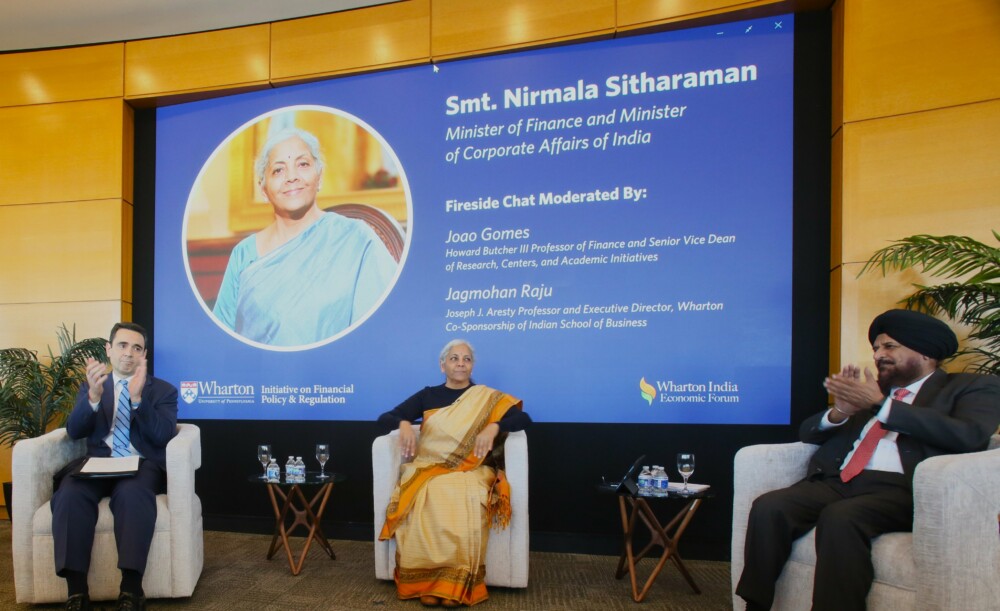
India to impose FDI restrictions to safeguard national interest : FM Sitharaman
WASHINGTON D.C. : India will impose restrictions on foreign direct investment (FDI) in the national interest to ensure safeguards due to its location in a highly sensitive neighbourhood said Finance Minister Smt. Nirmala Sitharaman in an interactive session at the Wharton Business School in the United States on October 22.
“I cannot blindly accept FDI simply because we need investment, unmindful of where it is coming from. We want business, we want investment, but we also need some safeguards, because India is located in a neighbourhood that is very, very sensitive,” Sitharaman said.
The Finance Minister’s remarks were made ahead of Prime Minister Shri Narendra Modi and Chinese Premier Xi Jinping’s bilateral meeting in the Russian city of Kazan during the BRICS Summit.
Sitharaman said that information regarding the ultimate beneficiary is provided by the disclosure standards established by the Securities and Exchange Board of India (Sebi). “Sometimes the ultimate beneficiary is a concern not because of who it is but where it is,” she said.
She pointed out that many nations have laws that govern these kinds of investments. “FDI, otherwise, is welcome, and we have opened it up. Sebi has been very forward-looking in reducing the regulations,” the finance minister added.
Sitharaman estimated that India may require $100 billion to meet investment requirements in order to reach the growth rate it seeks. The amount is currently between $70 and 80 billion.
The most important part is inclusiveness, Sitharaman said, “In everything that we do, we want to make sure that everybody gets included.” She also said, “Affirmative action is given in the Constitution. You will have to uplift the poor; you will have to uplift.
Sitharaman stated that innovation is the third area of focus and emphasized the necessity of innovative solutions for issues unique to India and its goals. “For many of the things that we want solutions for cannot be made somewhere and then brought here. The costs will go up and they may not be appropriate to the situation for which we want a solution. We want in-situ solutions for many of our problems. That itself becomes the challenge for innovations to work out,” she said.

